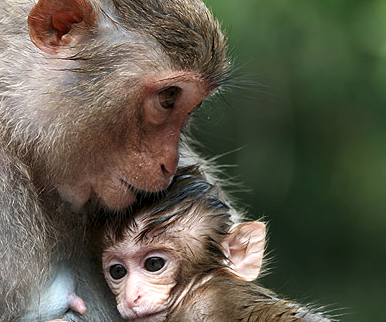
 Many people have read about the controversial maternal deprivation research on baby monkeys at the University of Wisconsin, among others. One need only google psychiatric experiments on baby monkeys to see the stuff of nightmares. For me, the grave difficulty with psychiatric experimentation on non-human animals is that, for the experiments to have any real value for treatment, you must begin from the foundation that the non-human animals are psychiatrically identical or at least substantially similar in their emotions and cognitive functioning to humans. That is, that the non-human animals are sentient; that they have an identical or substantially similar emotional spectrum; that they feel the same emotions such as fear, pain, joy, loss, and so on, as humans do. If they do not, after all, of what utility is the psychiatric and behavioral research performed on them to humans? Little at best and, I argue, none. However, beginning, as one must if one is to argue in favor of these experiments’ utility, from the supposition that the non-human animals feel in the same or substantially similar way as humans do, the ethical and moral implications of treating them as one would not or should not ever treat a human in these types of emotionally and often physically violent experiments are insurmountable.
0 Comments
It is my privilege to be able to use this blog as a vehicle to share a series of stories from across the country about the American immigrant experience. More on this project here. The ninth story is: Us_me vs. Them_ME by Widelyne Laporte I was born in Port-au-Prince, Haiti, which is commonly known as the poorest country in the Western Hemisphere. Which was wrongly stated by a powerful leader in America, as one of the “shit hole” countries. Before I was born, my father moved to America, leaving behind my mother and 5 older siblings, to build a better life for his family. He worked hard as a building super to live in a building for rent-free, in exchange for his services. My father knew little to no English, yet he somehow made it work, and I greatly acknowledge his hard work and perseverance. When I was 3 years old, my father was able to file for us to come to America. When we came, we lived in the basement of the building which my father worked at, for over 8 years. I remember this building being infested with rats, mice and flying roaches. We started off sleeping on the floor to my father saving enough to buy one bunk bed, which was shared amongst my sister and I. We made the best of our living lifestyle. Despite of our living conditions and being an immigrant, I was not embarrassed at a young age. However, as I got into elementary and junior high school, students often made cruel statements about immigrants. About me. At that time, there was a rumor spread that Haitians were bringing HIV/AIDS to America. Often times I would be told to go back home and called names because of what I wore and what my parents could not afford. I did not ever feel like I was an estranged person, an outsider, or loner until I started school. But, my lack of embarrassment of being an immigrant had a lot to do with my parents. My parents always spoke Hope and Faith in our God. Always said, “this was TEMPORARY. Everyday is a stepping stone.” My father is now the owner of a house, my older siblings married with kids, in their own homes with promising careers. And as for me, I am working as a nurse, giving back to my parents for their hard work and sacrifices. I am also giving back to the country that has given me the opportunity that I might not have had in my country, Haiti. I am a hard-working individual and also helping American citizens in a country which I was not born into. Being in the healthcare industry, caring for people of all ages, races, and ethnicities, I’ve learned a powerful thing; no matter what we are, we all are born into a world and will die into a world. Therefore, there shouldn’t be divisions, separation, inferiority, and human rights violations. The way immigrants are being treated with injustice is inhumane. Yet, it is the same immigrants as myself, who are able to give back and help PEOPLE as a whole. Widelyne Laporte
Widelyne was born in Haiti and migrated to the United States at the age of 3 with her mother. Widelyne is now a citizen, a licensed practical nurse and an actor. Facebook.com/widelyne.laporte **Special thanks to Ricardo Arechiga for his graphic design of the project logo**  It is my privilege to be able to use this blog as a vehicle to share a series of stories from across the country about the American immigrant experience. More on this project here. The eighth story is by Valery Valtrain: Like most children immigrants, I didn’t have any say in the big move to the United States of America. For some children, the move may seem like an adventure. But for others, the adventure involves leaving behind all that was once familiar in order to try to adapt to a world that even your parents are lost in. My mother, the only parent I’ve ever had, relied on me so much so; it sometimes felt as if we had somehow switched roles. Slowly, I began feeling the burden of being responsible for my mother. Feeling like it was my duty to ensure she was able to navigate around this new world, since I was the one adapting to it with greater ease. I grew up sooner than most. After all, I was responsible for so much more. I was often praised for having more maturity than my peers. Such is the life of an immigrant child. There is a duality to our nature that most of our peers could never embody. Our minds have to think in twos, always translating from one dialect to another. Always having to remember whom it is we are speaking to in order for the correct language to be spoken. We have to see the world through the lenses of our audience in order to ensure that we can truly relay the messages we are telling them. It often makes us more empathetic and more selfless. I bond better with people. I believe many immigrant children have an understanding of the world around us that most aren’t privy to. We are analytical by nature because we had to study the world around us more than once. We have to first make sense of the world for our own comprehension, and then have to continuously revisit it to explain it to our parents and anyone else in our families that aren't able to quite grasp it. We take in all of the information the world has to give and then we must scrutinize it in order to share it. Such a role, causes you to be attentive, to listen, to care, Perhaps that is why strangers tend to share intimate details about their lives with me, and friends often seek my advice. Feeling compassion for others, seems to be a constant with immigrant children whose roles mirror my own. We are given the task to be responsible for our parents and in the process, we tend to feel responsible for the world. Valery Valtrain Val Valtrain is a writer, a mother, an American, an immigrant, and the daughter of immigrants. She is interning with the Film Lab. **Special thanks to Ricardo Arechiga for his graphic design of the project logo**  It is my privilege to be able to use this blog as a vehicle to share a series of stories from across the country about the American immigrant experience. More on this project here. The seventh story is by Rosa Soy: I arrived in the United States on February 9, 1962, a day forever etched in my memory. I was sent here by my parents through the “Peter Pan” program, curiously named after a boy who would not grow up, which allowed children from Cuba to be welcomed to the U.S. The political undertones of this project were, of course, unknown to us at the time. Having been uprooted from the relative comfort of our middle class lives, we were called “refugees,” and placed in shelters, orphanages, and foster homes. We came alone without our parents who, we were told, would later join us. The program had the dual purpose of embarrassing the Castro regime, and protecting us, so that we would not be taken from our family and sent to the Soviet Union. Our parents assured us this was only temporary and they would join us in a short time. Temporary or not, the wounds of separation left lifelong scars. The interrupted childhoods the loss of homes, relatives, friends and pets, all that was familiar and dear to us, took its toll. The promised protection came with a price -- separation from those we loved the most. And, as our parents encountered numerous obstacles to our reunification, the separation was often unbearably long and painful. In spite of Peter Pan, we did grow up, apart from our families, making choices we did not always understand. We learned to relish our independence as immigrants to this nation. We mastered a new language, became accustomed to new landscapes, tastes and smells. Grateful for our good fortune, we pledged allegiance as new citizens, while longing for the people and places we had left behind, which had slowly begun to fade from our memories. Today, as an immigration attorney, I am often taken back to the pain and struggles of the early years. But I am rewarded by assisting a new wave of young people who long to be accepted and welcomed as immigrants to their new land. Rosa H. Soy Rosa Soy received a “Meet the Composer” grant for the “Future Feminine”a mixed-media project, and is the co-writer of The Rose Slippers,a children’s musical, an award recipient of the 2004 Jackie White Children’s theater competition. Rosa’s plays Esperanzaand The Planhave received staged readings at New Jersey regional theaters. Her play Venial Sinswas selected for the 2004 Samuel French festival in New York. And her short playPigeonswas presented at the 2005 Samuel French festival in New York. Her play “Off Balance” was presented at Luna Stage Theater Company in Montclair NJ. Rosa served as playwright in residence for Passaic County Community College during 2009 and 2010. She is currently working on a book about her experiences as an immigration lawyer. **Special thanks to Ricardo Arechiga for his graphic design of the project logo** It is my privilege to be able to use this blog as a vehicle to share a series of stories from across the country about the American immigrant experience. More on this project here. The sixth story was submitted in script format and is here: Roman Sotelo
Roman Sotelo is a graduate of Digital Photography and Imaging in Pratt Institute and Digital Cinematography in New York University. He is currently studying Filmmaking in School of Visual Arts. www.romansotelofilm.com  It is my privilege to be able to use this blog as a vehicle to share a series of stories from across the country about the American immigrant experience. More on this project here. The fifth story is: George by Riti Sachdeva In the mid-1980s, when I was in high school, my parents bought a house and moved us to a very white suburb (vws) just outside of Boston. In the svws, I went to a very white high school (vwhs), where I played the violin in the orchestra. Being a vwhs, every spring, the orchestra took a trip to play a concert in a different community. My sophomore year,the orchestra was invited to play at a high school in Montreal. From the vwhs, we were three busloads of students, chaperones, and instruments… and three bus drivers. The driver of the bus I rode was named George. He was dreamy with sparkling eyes, mischievous smile, and a super sexy goatee. He was probably in his mid to late twenties, so in my teenage fantasies, he was the “perfect age.” At fifteen, I was the perfect age for social and physical awkwardness. I had braces, an unruly head of coarse black curly hair, brown skin, big tits, big hips, and a big ass. No matter how hard I tried to have a cool American wardrobe, it just seemed bumbling on my body. For the entire trip to the Canadian border, the girls on the bus flirted with George. I wouldn’teven make eye contact with him, knowing that trying to be as charming or beautiful as the white girls would just end in my humiliation. At the U.S.-Canada border, all three buses stopped to go through Canadian immigration. We sat around for a bit before a Canadian immigratio nofficer stepped into the bus wanting to know: Was there anyone who was not a US citizen? I was the only brown black yellow or red student on all three buses. I don’t recall if the officer was looking directly at me…I raised my hand and volunteered my immigration status. He approached me. Are you a permanent resident? Yes. Do you have your green card with you? No. Come with me. As I walked on the bus, terrified, I made eye contact with George for the first time. He held my gaze, unwavering. Three busloads of impatient vwhs students watched me and the Canadian immigration authorities enter a building where I was interrogated for an hour. Why didn’t you bring your green card? I didn’t know. No one told me to. Country of origin? India. When did you come? 1975…? Who did you come with? My parents. Where have you lived? Parents names? Occupations? Mother's maiden name? They checked through records on what was a computer back in the mid-1980s. My green card number, my mother's green card number, my father’s greenc ard number, my parents' employers, other relatives in the U.S. When, finally, they were satisfied that I was not a Sikh terrorist nor would I try to defect, they approved my entry into Canada. I walked back to the bus wearing the stunned humiliation of being an Other: a registered alien, immigrant, brown teenager amongst three entire busloads of white people, except for the three Black men driving the three buses. I stepped back into the bus and felt the hostile silence and impatient stares from the very white high school students. I looked at George, big tears thrusting their way to the surface of my eyeholes. He welcomed me with his shining eyes and uttered the one thing that could revolutionize the indignity of the moment. He spoke a spell I carry, still, in the lining of my super hero magic…George grinned wide, "It takes a special lady to hold up three buses.” Riti Sachdeva www.ritisachdeva.com IG: @midniteschild YouTube: https://www.youtube.com/channel/UCrBSU9I7zOWxERjC1fPnAwQ/featured?disable_polymer=1 **Special thanks to Ricardo Arechiga for his graphic design of the project logo**  It is my privilege to be able to use this blog as a vehicle to share a series of stories from across the country about the American immigrant experience. More on this project here. The third story is: Home of the Brave by Avantika Rao, Attorney I am a longtime asylum and immigration lawyer who has worked with immigrants from Zimbabwe to Argentina. While U.S. immigration law is historically oppressive and exclusionary, I use the law to multiply freedom, to unite immigrants with their family, to allow longtime immigrants to be able to vote and participate as U.S. citizens, and to protect those who have been dehumanized due to their dissident or minority status. While I am a joyful spirit, I have experienced and been witness to more suffering than most could conceive. I am myself a survivor of virtual captivity and I work with immigrants and torture survivors from all over the world. I also recruit and mentor diverse attorneys to stay in the legal profession despite life-threatening challenges such as burnout, prejudice, and addiction. I am still haunted by the memory of the Salvadoran trans woman who had been disowned by family, tortured by police, and was enslaved as a performer in Mexican cantinas. Despite being jailed with the men, living with HIV, and suffering a stroke, she continued to send me drawings of Catholic saints with halos and hearts, adorned with messages of love and gratitude. She lost her claim for protection as a persecuted sexual minority. The white male immigration judge stated that she had a “victim complex” and blamed her for not remembering either her prior political asylum claim or details of the traumatic events. Judges can embody prejudice, transphobia, and patriarchy in their black cloak. She had been raped so many times that she had blocked entire years out of her memory. While intense trauma is not uncommon among the asylum seeking population, what is heart opening is the myriad ways in which immigrants and asylum seekers bravely overcome. Over the years, there were children and families from all over the world, crime survivors who qualified for visas after they cooperated with law enforcement investigations, political dissidents, girls or women or sexual minoritiesescaping forced female genital mutilationor domestic slavery or sexual assault, those whose nations were engulfed in deadly civil strife, those whose particular social groups made them subject to persecution, and those who wanted to reunify with their family, work in the United States, or be united with an immigrant they had fallen in love with. I recently worked with a Nigerian woman whose bravery clarified for me the profound reason why I do this work. She had been through absolutely horrific domestic violence and stalking. Yet, she was so strong, sure of herself, and positively effervescent. In a tribal marriage custom of Nigeria, the husband pays the bride’s family a “bride price” at the time of marriage. The return of that money finalizes a divorce. A husband can block a divorce by refusing the returned bride price. This is what happened in this woman’s situation. As a daughter of Indian immigrants growing up in suburban Los Angeles, my childhood had largely consisted of me witnessing my father turn my mother into a virtual captive through aggressive assaults, verbal degradation,restrictions on food and finances, and isolation. The tactics were even harsher when unleashed on us childrenbecause we had no way to defend ourselves and had no money of our own. It was a prison like atmosphere. He tied me up with ropes and left me locked in dark rooms. Food and clothing rations were given in an atmosphere of coercion and penance. He gave in to my pleas for pet dogs only to chain them up in the yard and flagellate them when they barked with loneliness before dropping them back at the shelter. If I asked for a Christmas decoration or a Halloween costume, I would get verbally assaulted for weeks before he would find something so incredibly cheap and ugly that I would conclude that I should not have asked in the first place. My father created an elaborate facade. He was the quite literally the P.T.A. President. I recall the evening that I witnessed my father drag my mother down the stairs by her hair and, fearing for her life, called the police. Two male L.A.P.D. officers stood outside on the stoop. “Is everything fine?” The abuser stood an inch or two away from her, quivering with rage. He had already torn the phones out of the wall. She nodded. I was mercilessly punished for trying to save my mother's life. My school books torn up. Assaulted and terrorized. Forced to give up any hard-won scholarship monies received. In my diary, I recorded the moment that I realized that my mother would never leave. I had come home and the abusive episode had already occurred. Adead feeling in the air. My father said authoritatively to my mother, “No one will ever believe you because I talk nicely to everybody.” She went to the front door of our home in Los Angeles. She opened the door. She let out a primal scream. Then, she closed it. She never sought refuge in a domestic violence shelter. She shunned counseling. She and my father constantly insulteddivorced women. She boasted about the dozens of invitations to lavish weddings and social events she got each yearfrom people she barely knows because of her status as a married woman in the local Indian immigrant community. Inside, she remains paralyzed with fear andshame, never wantingher toxic secretsrevealed to an adjudicator or discussed by the other Indian immigrants we socializewith. The fear and shame is still infused inevery fiber of her body. A code of silencehidden in ever larger and more luxurious homes and encircled by an invisible mental fence. In my work to free survivors of domestic violence and human trafficking, I often come across grooming, justifications, and feedback loops that enable the abuse. Each abuser has their own ecosystem. Manyin the ecosystem, including the victims,act as apologists and enforcers for the abuser. Those targeted for abuse quite frequently either numb themselves through addiction or perpetuate the abuse. Abusive ecosystems replicate themselves. I recently observed to my mother that it was not that she ever made an affirmative decision to stay, but that she quite simply never developed the courageto leave. “I agree, I am not brave,” she replied. Bravery is developed in the face of challenge to life or freedom. There are many alternatives to developing bravery. Self-pity, obsessing, or distraction. Workaholismor rescuing behaviors. Self-neglect or self harm. Harming othersthrough abuse. Adictive or compulsive behavior. Enmeshment. Perfectionism. Drama. And there is always the option of remaining paralyzedin fear and shame. The Nigerian womanhad unsuccessfully reported the abuse to the police and a human rights commission. The police had said, “Go back to your husband, madam.” Neither had reined in the abuser, much less investigated the matter. I asked what it was that sparked the Nigerian woman’s decision to flee. She said she hadread articles about domestic violence. She realized that itwas a major social problem, indeed a life-threatening one. Though she had attempted to get her daughters passportsto be able to travel with her, her abuser used their two young daughters as leverage. After she fled, her abuser sent achilling message with a photo of the girls’ passports stating that she would never see her children again. She fled to the U.S. without her two daughters. At the time she fled, her girls were not even old enough to attend school. I filed for gender-based asylum for her. We won. However, her ordeal is far from over. Her gaining asylum is just the first step in a long fight to petition the legal system for her daughters to be reunited with her. In the Nigerian courts, from what I have read, it is a system in which the father’s power over custody and family decision making power is assumed. When she read the articles, she realized that her very life and freedom wereat stake. In her flight to freedom, she, like many of the courageous immigrants I represent, exemplifies bravery. I hope that one day I get to witness the smiles of her two daughters holding their mother’s hands in the home of the brave. Avantika Rao Avantika contributes to spiraling up justice through direct service (particularly to immigrant survivors of domestic violence, sexual assault, and/or modern-day slavery), uplifting diverse candidates into the legal profession, and collaboratively detonating injustice and prejudice. Avantika has defended (adult & child) immigrants at the US-Mexico border and served as a founding attorney in San Francisco's immigrant defense network. Her Sacramento-based law practice operates at the intersection of immigration & human rights. Prior to law school, Avantika studied environmental and gender policy in the U.S., India, & Nepal. She prefers milk chocolate to dark. **Special thanks to Ricardo Arechiga for his graphic design of the project logo**  It is my privilege to be able to use this blog as a vehicle to share a series of stories from across the country about the American immigrant experience. More on this project here. The second story is: NOT QUITE by Ada Cheng, Ph.D. On May 27, 2015, my guests and I arrived at the USCIS building in downtown Chicago right before 1 PM to attend my citizenship ceremony. There was a long desk inside the entrance of the ceremony hall and three agents were sitting there. When it was my turn, the first agent took my green card and my notice. The second one examined them and threw them into this big yellow envelope while the third one checked my name off a list. My heart sank when I turned in my green card. This was the only legal documentation in my possession to prove that I was documented or legal in this country. At that moment, I was without any documentation. I suddenly became an “illegal” in the eyes of the state. I started to panic as I walked into the big hall, where hundreds of immigrants like me had already been seated. It was very scary to be with hundreds of people without legal documentation. It was as if we were waiting for our collective sentence. Theoretically, any one of us could be arrested, locked up, and deported right there and then. But deported back to where? It has been more than two decades since I left Taiwan in 1991. I have family there, but it has not been my home for more than two decades. Going back there is not going home. But then where is home? My heart pounced every time an agent walked toward my direction. I kept thinking to myself: Is this all a trap? Is the agent going to tell me something was wrong with my application and they changed their mind about naturalizing me? Did they not believe me when I told them during the interview that I didn’t torture anyone, that I didn’t engage in genocide, that I did not intend or attempt to overthrow the US government, that I was not a communist, that I was not a terrorist, that I was never in prison, that I never committed felonies, that I was not a gambler, that I was not an alcoholic, that I did not abuse any drugs, that I didn’t force anyone to have sex with me, and that I didn’t solicit sex? Suddenly, I saw my guests enter the hall and take their seats. After a few minutes, the director walked up to the podium and announced that the ceremony would begin. I felt a sense of relief. When we were watching the documentary, the narrator talked about how fortunate it was that we, like previous generations of immigrants, escaped war, poverty, and political and religious repressions, to come to this country to pursue the American dream. I immediately felt terrible that I invited my colleague to the ceremony. You see, my colleague was a 70-year-old African American man. His ancestors didn’t come to this country voluntarily. What was my celebration was not necessarily his to have even though he was very happy for me. Our stories were connected yet very different. I got through the ceremony and eventually received my certificate of naturalization. This certificate has two numbers. It has the number for the certificate. It has another number A#########. Do you know what that A stands for? I didn’t even realize the significance of these two numbers until when I tried to apply for the Affordable Care Act health insurance in December 2016. They asked for both numbers on the application when I identified myself as a naturalized citizen. That A stands for alien. That’s my Alien registration number. A number I carried for decades before becoming a citizen. You see, those numbers are for registration, and there is always a registry for aliens. I am forever reminded of my Alien status every time I am asked for them. Most people would assume that the process of naturalization enables immigrants like me (let me be clear, a very privileged one) to assimilate into this country, become part of this country and finally be home. I have contributed to this country by educating young people at the university for 15 years. Here is the irony. Not as a citizen, but as an immigrant. First on my H1B visa and then with my green card. This country has entrusted immigrants with many of her most important jobs, including raising children, caring for the sick, and educating young minds, yet we are forever unwelcome. As much as I try to blend in by achieving the American dream, this country or shall I say this government is never going to let me forget that I am indeed an Alien and I will forever be one. So this is my American journey. My American dreams pursued and achieved, but I am still not home. Shu-Ju Ada Cheng Ada Cheng is a professor-turned storyteller and performing artist. She has been featured at storytelling shows in Chicago, Atlanta, Cedar Rapids, New York, Asheville, and Kansas City. She debuted her first solo show, Not Quite: Asian American by Law, Asian Woman by Desire, in January 2017, which later received a great review from Washington Post. She debuted her second solo show, Breaking Rules, Broken Hearts: Loving across Borders, with Fillet of Solo in January 2018. In addition to performing it at The Exit Theatre in San Francisco in June, she will also bring it to the United Solo Theatre Festival New York in October this year. Ada is the producer and the host of the show, Am I Man Enough: A Storytelling/Podcasting Show, where people tell personal stories to critically examine the culture of toxic masculinity and the construction of masculinity and manhood. She is also the co-producer and co-host of Talk Stories: An Asian American/Asian Diaspora Storytelling Show, a show that features Asian/Asian American performing artists and storytellers. Her motto: Make your life the best story you tell. Her website: www.renegadeadacheng.com. **Special thanks to Ricardo Arechiga for his graphic design of the project logo**  It is my privilege to be able to use this blog as a vehicle to share a series of stories from across the country about the American immigrant experience. More on this project here. The first story is: HOMELAND by April Xiong My mother came to America two years after my father did, while already pregnant with my older brother. Last year, she reached the strange intersection of having spent exactly half her life in China and half her life in America. Years before that, she had renounced her Chinese citizenship to become a U.S. citizen, though not for any idealistic reason. It was purely a practical decision: having a U.S. passport would make it much easier to travel to Europe, a destination long dreamed of. Last summer, she finally got her chance. Having worked hard all her life, my mother is starting to take more of an interest in material pleasures. My father, unlike my mother, has never given up his Chinese citizenship, and likely never will. He sings the old songs when he cooks. He tastes China in the hot steaming food he prepares out of the cold produce of our American refrigerator. He often takes business trips to Chengdu, returning to the land of his birth with a secret smile and a feeling of relief. To speak his own language again, to be with his own people, who understand him. I do not understand him, though I try. The story goes like this: my father came to America to earn his Ph.D. in mathematics at Ohio State University, the only place he was accepted. He landed in San Francisco in the dust of Chinese footsteps, two years before my mother, carrying my brother in her womb, followed him to our land of the free. He arrived in the city with only $50 and an enterprising spirit to his name. The first night, he spent $35 of his $50 for a hotel room and a meal. Ever the mathematician, he quickly saw that he would have to increase his funds; the next day, he went and borrowed $300 from the Chinese embassy. With that princely sum, and with the $15 he had left from his original supply, he flew to Ohio to begin his new life there. The trip used up all of his money, borrowed money included. Fortunately, he had a teaching assistant position at the university that paid for housing, food, and tuition. He lived in an apartment building near campus, and his room was very small—just big enough for a desk, a bed, and a TV. He claims he was very happy in those days. He tells the story straight, as he always does. Straight, without embellishment. Everything must have been exactly the way he tells it—black and white, no grey. He demands the utmost clarity in everyone and everything around him. This inflexible quality is surely a byproduct of his mathematical background. So used to the perfect, elegant succinctness of equations and numbers, he must find this strangely-shaded world of ours a bewildering and inefficient place. As for me—who staggers around in a perpetual state of obfuscation—he looks at me, always, with furrowed brows and a faint look of disapproval. In his eyes, am I a theorem waiting to be proven? Do I puzzle him as much as he puzzles me? I wonder what my life would be like now if I had been born, and grown up, in China. Would I have the same values, beliefs, interests, dreams? Maybe I would be a doctor, like my mother, or a mathematician, like my father. The truth is, I wouldn’t have been born. Due to the one-child policy, my parents would have stopped having kids after my brother. I wouldn’t be alive now if they had stayed in China; I owe my very existence to the fact of their immigration. Grateful that I made it into this world at all—here I stand on my line of love, looking back-and-forth between two cultures, two nations. On one side lies the land of my kin, the land that my parents never truly left behind, the land that I long to know…on the other side lies the land of my fellows, the land that I can never truly leave behind, the land that I have known. Here I find my homeland—here on this line of love. April Xiong April Xiong is a writer, director, and editor. Her short film "Drive," adapted from the poetry of Hettie Jones, was featured in the 2018 Visible Poetry Project. Having traveled the world in search of unheard stories, she is devoted to exploring the voice of the other in her writing and films. Instagram: @april.xiong Facebook: @april.q.xiong Website: https://www.aprilxiong.com/ Vimeo: https://vimeo.com/aprilxiong **Special thanks to Ricardo Arechiga for his graphic design of the project logo** 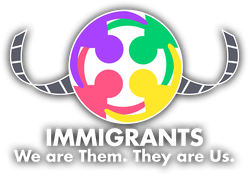 Immigrants and the topic of immigration generally has been a touchy subject and highly politicized for years. The past year, however, has seen a significant increase in media coverage of so-called “nationalism” and rising fears about and for immigrants in the United States, as well as across the world. I blogged about two experiences I had with immigrants in New York City – one in which I felt a woman who couldn’t speak much English was being strong-armed and one in which I met a woman who was a math professor in her native country and now a tui na massage therapist in her new country. You can read those posts here and here. The experiences inspired me to approach the Board of the Film Lab, an entertainment media non-profit I am the president of, to see if the Film Lab could utilize the arts to draw together people from all walks of life to have an open and honest dialogue about immigration and what it means to be an “American,” in a safe space that would allow people to admit fears they might have and address them in a constructive way. The answer was an overwhelming YES! We began by soliciting short written stories based on the writers’ personal experiences from people across the country. I’m excited to be able to use this blog to publish those stories and we invite everyone to – politely and constructively, please – comment and share their own stories and ask the writers questions online. You can use the blog posts or join the conversation on Facebook.com/AsAmFilmLab or on Twitter @asamfilmlab #Immigrant #American #RepresentationMatters #ImmigrantsTheyAreUsWeAreThem The second prong of the project consists of collecting video footage of people from around the country, describing what “immigrant” means to them. Those tapes will be rolling out on Facebook.com/AAFLTV and on the Film Lab’s YouTube channel, www.YouTube.com/asamfilmlab. Again, please comment, question, like, share, and take part in the dialogue. Feel free to upload your own video describing what “immigrant” means to you, what you think it means to be an “American,” and what your feelings are on the topic of immigration. Finally, we will be holding live events in New York City, using live theatre, film and television to create interactive, open and honest conversation about immigrants, immigration and what it means to be an “American.” I am thrilled to announce that our first stage event is a collaboration with The Tank and Leviathan Lab that will take place in February 2019 at The Tank in New York City. Leviathan’s Executive Director, Ariel Estrada, will be working with me and with all of the Film Lab team to create a stage piece for the public. We hope to raise more funds to create multiple live and interactive events across the city. I’m excited about this project and hope you’ll join us in reaching out to create a real conversation about a topic that has become anything but simple. The Writers A special thanks to the writers contributing to this project: April Xiong April Xiong is a writer, director, and editor. Her short film "Drive," adapted from the poetry of Hettie Jones, was featured in the 2018 Visible Poetry Project. Having traveled the world in search of unheard stories, she is devoted to exploring the voice of the other in her writing and films. Social Media & Websites: Instagram: @april.xiong Facebook: @april.q.xiong Website: https://www.aprilxiong.com/ Vimeo: https://vimeo.com/aprilxiong Avantika Rao Avantika contributes to spiraling up justice through direct service (particularly to immigrant survivors of domestic violence, sexual assault, and/or modern-day slavery), uplifting diverse candidates into the legal profession, and collaboratively detonating injustice and prejudice. Avantika has defended (adult & child) immigrants at the US-Mexico border and served as a founding attorney in San Francisco's immigrant defense network. Her Sacramento-based law practice operates at the intersection of immigration & human rights. Prior to law school, Avantika studied environmental and gender policy in the U.S., India, & Nepal. She prefers milk chocolate to dark. Eriko Tsogo Eriko Tsogo is a Mongolian American visual artist and filmmaker born on the steppes of Ulaanbaatar, Mongolia. Eriko grew up in Budapest, Hungary and immigrated to the United States with her family at the age of 8. She is an alumni of Denver School of the Arts (2008), having attained her B.F.A (2012) from the School of the Museum of Fine Arts Boston and Tufts University. She is based in Denver and mindscape Mongolia but lives bi-coastally in the US. Eriko has had numerous art shows, curatorial projects and art residencies throughout the United States. Alongside pursuing her artistic practice, Eriko works as the Creative Director at the Mongolian Culture and Heritage Center of Colorado. She is also a published author and founder of “HiliteDreamer”contemporary apparel line. She is currently in process of completing her first international documentary animation film project between Colorado and Mongolia, due to release in 2019. Eriko’s ever-revolving identity as a first generation Mongolian American nomadic voyeur profoundly shapes her artistic process. Her artworks act as part biographical expose, portraying the universal psychological inner journey of the marginal identity thereby helping transform through the power of empathy, inspiration, and empowerment. Jen Yen (me!) My bio is here Riti Sachdeva www.ritisachdeva.com IG: @midniteschild YouTube: https://www.youtube.com/channel/UCrBSU9I7zOWxERjC1fPnAwQ/featured?disable_polymer=1 Roman Sotelo Roman Sotelo is a graduate of Digital Photography and Imaging in Pratt Institute and Digital Cinematography in New York University. He is currently studying Filmmaking in School of Visual Arts. www.romansotelofilm.com Rosa H. Soy Rosa Soy received a “Meet the Composer” grant for the “Future Feminine”a mixed-media project, and is the co-writer of The Rose Slippers,a children’s musical, an award recipient of the 2004 Jackie White Children’s theater competition. Rosa’s plays Esperanzaand The Planhave received staged readings at New Jersey regional theaters. Her play Venial Sinswas selected for the 2004 Samuel French festival in New York. And her short playPigeonswas presented at the 2005 Samuel French festival in New York. Her play “Off Balance” was presented at Luna Stage Theater Company in Montclair NJ. Rosa served as playwright in residence for Passaic County Community College during 2009 and 2010. She is currently working on a book about her experiences as an immigration lawyer. Shu-Ju Ada Cheng Ada Cheng is a professor-turned storyteller and performing artist. She has been featured at storytelling shows in Chicago, Atlanta, Cedar Rapids, New York, Asheville, and Kansas City. She debuted her first solo show, Not Quite: Asian American by Law, Asian Woman by Desire, in January 2017, which later received a great review from Washington Post. She debuted her second solo show, Breaking Rules, Broken Hearts: Loving across Borders, with Fillet of Solo in January 2018. In addition to performing it at The Exit Theatre in San Francisco in June, she will also bring it to the United Solo Theatre Festival New York in October this year. Ada is the producer and the host of the show, Am I Man Enough: A Storytelling/Podcasting Show, where people tell personal stories to critically examine the culture of toxic masculinity and the construction of masculinity and manhood. She is also the co-producer and co-host of Talk Stories: An Asian American/Asian Diaspora Storytelling Show, a show that features Asian/Asian American performing artists and storytellers. Her motto: Make your life the best story you tell. Her website: www.renegadeadacheng.com. Valery Valtrain Val Valtrain is a writer, a mother, an American, an immigrant, and the daughter of immigrants. She is interning with the Film Lab. Widelyne Laporte Widelyne was born in Haiti and migrated to the United States at the age of 3 with her mother. Widelyne is now a citizen, a licensed practical nurse and an actor. Facebook.com/widelyne.laporte **Special thanks to Ricardo Arechiga for his graphic design of the project logo** 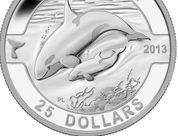 An Open Letter to John T. Reilly or whoever the current CEO of SeaWorld Entertainment is by the time this blog post is published (there’s been a lot of turnover)[1]: This will be short and sweet. Most of us have seen Blackfish.[2] Many of us have boycotted SeaWorld.[3] The PR nightmare SeaWorld faces continues despite clever-ish (sorry) ad campaigns that have marginally raised some numbers, however, I have very exciting news for you that, frankly, you should have been able to figure out on your own. You can fix it without needing morals or a conscience! SeaWorld’s Board of Directors seem to be lacking morals or consciences anyway, so let’s just move forward with a plan to rehab SeaWorld in the public eye in a way that will make you gobs and gobs of money without worrying about morals. Sound good? I. SeaWorld the Sanctuary First, just grab a couple of those pesky animal welfare activists that are taking your profits down the toilet and hire them in consultant positions to (1) turn SeaWorld into a for-profit sanctuary wherein the whole park becomes basically a park/museum for SeaWorld Rescue.[4] Yes, yes, I know SeaWorld Rescue currently only accounts for something pathetic like a 0.0006% revenue spend.[5] Change that. Make the whole “Explore! Inspire! Act! SeaWorld Cares!” thing your new business model and make those pesky animal welfare people partner with you to transition over. You keep the parks and lose the dolphins and orcas, but you can keep the injured/sick/unable to survive in the wild animals you “save,” who will now be “ambassadors” for their species to hordes of adoring children at your new sanctuary, all of whom will be accompanied by parents with pockets full of cash they’re dying to spend in this fab new guilt-free “sanctuary” of a park. Getting the animal welfare people (especially PETA) on board as consultants and getting them to link their names with yours gives you legitimacy with their followers (all those people currently protesting you) and makes them invested in your success – ohhhh, the joy of it when they tell their people to support you and buy a ticket for “doing the right thing.” II. Pay-Per-View for a Literal “Free Willy” Series of Moments OK, you’ve got a bunch of dolphins and whales being masturbated- err, mistreated-err, whatever, at your “park,” right now.[6] You’ve got protesters in the street about it and you’ve got big animal welfare organizations pissed off. Never mind animal welfare! You’ve got to save your bank account! Breath, just breath. It’s not that hard. As you do your amazing PR makeover from SeaWorldSuxto SeaWorldSanctuaryas outlined in Section I, above, you’ll get those aforementioned animal welfare peeps to advise you on how and where to release the dolphins and orcas – I know, I know, you’re already crying. Stop crying. You’re going to make a ton of money and it will keep coming. MORE money than you’ll make from the current captives. You will do a huge, glitzy media blast all along the lines of “Free Willy” (don’t worry; most people don’t know the real Willy had a less than happy ending to his story when he died of Pneumonia, and, anyway, you can learn from that and be prepared). Every dolphin and whale will have a live interactive media platform users can interact with and they can donate to send “Wanda” or whoever to the ocean or to a Sea Sanctuary[7](you will have to send some proceeds to the Sea Sanctuary-sorry, but you’ll still make a ton of money). There will be a countdown clock at the top to the time the animals are released. Each release will be a different (pay) event and on a different day involving concerts (which you’ll charge for) and viewing parties (which you’ll charge for) and lots of cool T-shirts (which you’ll charge for). I urge you to send your orcas with still-living wild mother orcas in the open ocean right back to those wild mamas because…just think of the ratings! That’s such an intense reunion and if it fails, well, you’ll just blame it on your animal welfare consultants and show how you did the right thing and sometimes life isn’t perfect, but you’ll make a ton of money promoting the event, giving rights to televise and stream the event, maybe selling tickets to some boats full of gawkers to watch the event with lots of beer and SeaWorld swag. Then there will be the books, the movies, the talk shows. When SeaWorld finally began to care! And everyone will think you’re a saint when really you’re just making tons of money. How great would that be? You can have lines of shirts and tote bags for each animal – “Free So-And-So!” and YOU get all the profits this time, not those animal welfare organizations. Take that, haters! You can easily make this drag on for a full year of releases and make money hand over fist while gleaming under the light of your new halo and continuing your dicey animal exhibitions with the poor rescued animals SeaWorldRescue finds injured and unable to return to the wild. Your park attendees don't care whether it's an adorable injured seal or a kidnapped, tortured orca they're watching live - they really don't. III. Live Streaming and Online Interactions in Sea Sanctuaries … or the Open Ocean if You’re Feeling Particularly Bold Now, on those multi-media platforms you’re using for each animal, you can list all the reasons the animals might NOT survive in the open ocean – because you made them to used to humans, deprived them of the ability to learn to hunt, socialize, or maybe something more PR-friendly, but make it clear this is a game of risk! This game is for the bold. Everyone’s hearts will be on tenterhooks. The release party isn’t the end of this profit making game at all! People can pay to tune in to follow the progress of each animal and donate to the Sea Sanctuary, if she or he is in a Sea Sanctuary (with a piece going to you, too, of course) or pay to follow tracking progress in the great wide ocean. If you’re transparent about the possibility for sad endings, you still win. “Yes, she did die, but she died with her loving mother in the ocean she was born in; not in a tiny concrete tank and you should donate to us now to help us save other animals from those similar fates we gave them in the first place! Money please!” It’ll work, but just don’t say it quite like that. And don’t forget the very real possibility that the story endings could be really happy. The animals could live for a really long time and excited SeaWorld lovers could follow their progress, donate towards “research” about them and continue to buy all sorts of themed products based on them. Conclusion The concerts will return. The crowds will return. The MONEY will return. You don’t care about doing the right thing. But you do care about money. This plan is for the bold company who knows how to take a lemon[8]and make a billion dollars out of it. You’re welcome. [1]https://www.orlandoweekly.com/Blogs/archives/2018/06/11/seaworld-leadership-shake-up-continues-as-the-company-moves-into-the-next-chapter-of-its-recovery [2]http://www.blackfishmovie.com [3]https://www.livekindly.co/seaworld-attendance-drops-more-than-half-million-visitors/ [4]https://seaworldcares.com/Rescue-at-Seaworld/ [5]https://grist.org/living/seaworld-only-spends-0-0006-percent-of-revenue-on-animal-rescue-and-rehabilitation/ [6]https://www.seaworldofhurt.com/features/dolphins-whales-dont-belong-at-seaworld/ [7]https://www.seaworldofhurt.com/sea-sanctuaries-sure-thing-get-program-seaworld/ [8]https://support.peta.org/page/1943/action/1  Feminist Thor Female (and male) moviegoers cued up in lines across the country when Wonder Woman made it to theaters. The 1980’s classic was beloved by many but while Batman, Superman, Spiderman, the Hulk, and a host of other Marvel and DC heroes got the silver screen treatment, sheroes for the most part, remained supporting cast. It was monumental then, when Marvel brought Wonder Woman to the big screen. The movie was indeed wonderful. Diana Prince was confident, principled, beautiful, compassionate, and strong. On top of that, any romantic interludes were a part of the story, not the story. On the surface, she was the shero the #metoo movement had been waiting for. But while I enjoyed the movie, I didn’t resonate with my own experience. Diana’s story, her origins as the daughter of a god, nurtured in a strong matriarchical society, was too far from our current cultural and political reality. It was based on a Marvel universe that didn’t mirror my reality. Instead, I found a story that rang truer in, of all places, Thor: Ragnorak. I will admit that I had never seen a Thor movie before, watched it on the plane, and was drawn in by the hunky lead actor (and Cate Blanchett). You’re right to be skeptical that a movie about a beefy Norse god, would be feminist. The very mythology of Thor is paternalistic, from the unilateral way Odin rules Asgard, to his relationship with his sons, to the lack of strong female characters. I watched the previous two movies to learn that the main female character in those movies was a waif-y but brilliant and brave human. Even Thor’s mother (hello, Renee Russo!), while courageous, is bested in one short scene. However, Thor: Ragnorak has a strong female character in Cate Blanchett’s, Hela. But she’s the villain you exclaim! She plays the anti-hero! Her character is reductive and falls into the camp of heartless, child-less, dragon lady. While this is true, Blanchett gives her so much more depth, and the telling of her history lifts up the plight of women. It doesn’t pay homage to women by casting a woman in a powerful role, it pays homage to women by telling a truer story of women in history. Moreover, Hela’s story is told by Hela (all the better that it’s in Blanchett’s voice), uninterrupted. I think it’s important that Hela tells her own story, almost entirely alone, and it’s not an explanation before a big fight scene. This is even more remarkable given that Hela is villain. As Hela walks into the throne room with her recently anointed henchman, Skurge, she pieces the Michaelango-esque ceiling with spears (which magically appear in her hands) and pulls down the murals of Odin and Thor’s triumphs in battle. The ceiling gives way and reveals a hidden history of Hela riding alongside Odin, wielding the famous hammer. She was the one who conquered the nine realms and built Asgard but Odin has hidden this past. This point is made clearer when Hela addresses the citizens of Asgard and asks them to kneel before her. Granted that’s not the best way to get people to respect you, that wasn’t why the Asgardians refused. As she proclaimed, “Does no one know who I am? Does no one know our history?” They don’t because Odin has erased her from Asgard’s history and taken credit for all of it, presenting himself as the sole hero. Upon entering Odin’s chamber of treasures, Hela knocks over a golden vase, flatly stating, “fake”. She challenges and exposes Odin’s manufactured grandeur, from the treasures to peace treaties. Even Hela’s depiction as drawing her power from Asgard could be a nod to women-centered wiccan and pagan religions. And maybe the final scene where Hela battles the demon-monster as he destroys Asgard, is reflects the destruction of women-centered societies and power, because destroying Asgard is the only way to destroy Hela. Our collective human history has somehow managed to erase the contributions of women. Matriarchical societies were more common than we have been taught. Women held high status as healers, priestesses, keepers of knowledge, and political leaders but most modern history books fail to include those stories. Not surprisingly, Hollywood has marched in step. Only recently have more movies been focused on women’s contributions. Hidden Figures and Big Eyes come to mind. Thus, in telling Hela’s story, her demonization and erasure, in my opinion, is a truer depiction of the struggle of women and, ultimately a feminist act. I searched the web for answers as to why this version of Thor was so markedly different from the previous two. In the third installment of the franchise (excluding cross-overs) Thor seems to have matured from a one-dimensional strong, silent type to a neurotic, sensitive, and hilarious superhero who’s still able to kick butt. The hair cut was also a welcome change. The selection of Taika Waititi may have been a big factor although I found several interviews with lead actor, Chris Hemsworth voicing a desire to break out of his too-tight armor and have some fun. First, well done gentleman. The combination of Waititi’s history of directing independent works that feature under-represented people (Two Cars, One Night) and varied subject matter and genre exploration combined with Hemsworth’s comedic bent meant for a very enjoyable movie. But I didn’t find anything to suggest that either men were looking to uplift women or tell a different history. Maybe it was the influence of Academy Award winning actress Cate Blanchett. While Blanchett gives interviews in which she riffs about being Marvel’s first female villain, she doesn’t expound on this point. I hadn’t even realized that Hela was the first female villain, another notch for womankind. But it wasn’t just the uplifting of women, the story also dismantles some paternalistic elements of the past two movies. In the first two movies, Odin is portrayed as the powerful but benevolent king who brought peace to the universe and forgiving father to Loki (who tried to dethrone him yet he wasn’t imprisoned!). In Ragnarok, we see a dark side to Odin. Viewers will probably forgive him for abandoning and imprisoning his first-born (she is the goddess of death, after all), but that is very poor parenting at the least and abusive at the worst. As Hela explained, “I was his weapon in the conquest of the nine realms.” He fed her appetite for destruction but when he couldn’t control her anymore, he dispensed with her. Or maybe he felt challenged by her power? He also doesn’t show remorse for imprisoning her or accept any blame for creating the situation. The story finally gets complicated. In the end, the movie’s depiction of the history of women is more realistic and relevant to today’s climate than the depiction of the history of women in Wonder Woman. I’m not sure any of this was intentional. The optimist in me wants to believe that it wasn’t because that means Hollywood has realized how our histories and narratives are sometimes manufactured for the benefit of the male hero and is unintentionally unwinding and exposing that revisionist history. 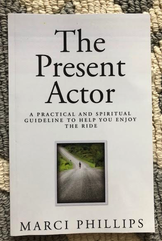 Many NYC actors know Marci Phillips as the head of ABC TV’s New York Casting Office. Additionally, she is the longest-running judge of the 72 Hour Shootout, a film competition the Film Lab (a non-profit I run) has held annually for over a decade to promote gender and ethnic diversity in entertainment media. Marci is also the author of a book called “The Present Actor.” She gave me this book during the course of an acting class I took with her this summer and it really resonated with me because it addressed acting, of course, but went far deeper than that by substantively discussing being good to your body, eating healthily, being a nice person, and having a healthy, happy spiritual life in order to be truly professionally fulfilled and happy. Because that advice applies to and can help everyone, not just actors, I reached out to Marci and asked if she would be willing to do an interview for EIBBB. Happily, she said yes! I am delighted to present her oh-so-wise insights for you! **Note: the opinions expressed by Marci are her own, not necessarily ABC’s or Disney’s and all health-related information discussed is informational only and should not be considered a substitute for medical advice from a duly licensed physician. OK, had to do that. Now, onwards!** Can you tell us a little about your background and what first interested you in compassionate, healthy, spiritual living? I had a very colorful childhood – full of yin & yang, good & bad, fun & dread. I was given some incredibly difficult challenges at a very young age and I’m grateful for them. Hardships foster perspective and help you to develop a great deal of empathy and compassion for one’s fellow beings! You recently wrote a book called “The Present Actor,” in which you address, in part, a myriad of ways actors can use nutrition, physical exercise, spirituality, and, basically, healthy living to alleviate stress and even to improve their creativity and career growth. What are some of the most important takeaways for people - not just actors, but anyone - who want to use a healthy and compassionate lifestyle to make life richer and fuller? Most people take better care of their possessions than they do their own bodies. When you’re 25 years old, make choices for yourself that the 65 year old you will be grateful for. The fuel and building blocks of nutrition that you give to your body today will also affect your health and well-being when you’re much older. We all want to be as productive as possible and to be useful in this world for as long as we can. You make choices every single day of your life that either helps that or hinders that. You advise actors to "just say no" to substances like dairy, gluten and sugar. Can you elaborate a little on that? Some people have no problem with Dairy but it’s the cause of phlegm, skin and stomach problems for others. Listen to your body, it’s always telling you what’s going on (if you’re paying attention)! If you do eat it, the best dairy is raw & organic as the process of pasteurization kills all of the enzymes. Raw dairy is legal in many states but not NY – here you can only purchase raw cheese. Gluten is another substance that affects some people more than others. But even if you don’t have Celiac’s disease or aren’t overtly sensitive to gluten, it causes inflammation of the gut, brain fog, skin problems and makes you vulnerable to autoimmune diseases. Any high carb diet, gluten or no gluten, will cause sugar spikes in your bloodstream. Sugar is rat poison, plain & simple. You can cripple your immune system for up to 5 hours after eating sugar….who can afford to do that?! If you think that you can’t stop eating sugar, it’s been said that this insidious white powder is more addictive than heroin. It will eventually make you fat and screw up the inner ecology of your gut – causing skin problems and a host of cascading diseases. It’s the number one source of food & fuel for Cancer cells….yikes. You don’t have to believe me, your body will yell at you sooner or later! We have another blog piece on meditation, featuring psychotherapist Lisa Story here, however, it's such a useful, helpful thing for everyone's mental clarity - and you can do it for free and in your own home! - that we want to mention it again. You talk in your book about the benefits of meditation. Can you give some technique tips to laypeople who want to try it out? I wish I could master it but I suck at meditation, so I follow the advice given by a Traditional Chinese Medicine Doctor to close my eyes and just count backwards from 200! What are some of your favorite supplements and why? I take about 10 -15 supplements at any given time but 3 of my favorites are: Proteolytic enzymes between meals, as they reduce inflammation, break down protein-based foreign bodies and boost immunity…..Vitamin D3 with MK7 - as Vitamin D ensures that calcium is absorbed but MK7 directs it to specifically where it’s needed, like your bones…..and Probiotics to repopulate the gut with good bacteria as most of us have decimated our inner ecology through tap water alone! But I’m not a doctor so don’t take anything that I mention here unless a doctor tells you to! Homeopathy! Can you give a little advice on how to find a good homeopathic doctor to readers in the NY Area (or CA, if you know of any!)? I rely on ZocDoc….maybe a bit too much! Research and vet any healthcare person that you go to…..just because someone has a title doesn’t mean that they’re any good. There are so many amazing herbs out there and a myriad of herbal remedies and we don't have room to talk about all of them, however, could you choose, perhaps, your top 3 and tell us a little about them? Stomach Formula – a time tested mixture of Aloe Vera, peppermint and many herbs that soothe any minor stomach ailment – you can buy it in any decent health food store or online. But I’m not a doctor so don’t take anything that I mention here unless a doctor tells you to! Yin Chiao Chieh Tu Pien – my favorite Chinese Herbal supplement when you feel you may be coming down with a cold or flu! But I’m not a doctor so don’t take anything that I mention here unless a doctor tells you to! Jade Wind Screen Formula – another time honored Chinese supplement with Astragalus, Chinese Yam and other herbs to boost immunity. But I’m not a doctor so don’t take anything that I mention here unless a doctor tells you to! Is there any other advice or feedback you'd like to share with EIBBB readers? If you look for what’s wrong in your career, in others and in yourself, you’ll always find it……and it’s the same thing when you look for what’s right. Last, but not least, what does the phrase "Ethical is Beautiful; Be Beautiful" mean to you? Hmmmmm……“ethical” is a subjective term. I know people who worship certain leaders right now who consider themselves to be “ethical”. I prefer the phrase “Being Humane & Considerate is Beautiful. Be Beautiful” And, because, we have to, on more time: **Note: the opinions expressed by Marci are her own, not necessarily ABC’s or Disney’s and all health-related information discussed is informational only and should not be considered a substitute for medical advice from a duly licensed physician.**  In New York, the City has an anti-terrorism or public safety type of poster campaign in which you see pictures of abandoned backpacks with the implication being they could hold bombs and the pictures urge the viewers, “If You See Something, Say Something!” I think this suggestion could very well apply to racism and sexism as well as abandoned backpacks. In a wonderful article for The Root, Michael Harriot made that point (and more) in exhorting white people to speak up every single time they saw racism. https://www.theroot.com/white-people-are-cowards-1826958780 What about sexism and sexism in sports? What about if men spoke up every time it happened and said, “Oh, hey, maybe let’s not do that, ok?” I’ve blogged before about systemic gender bias in sports (see, e.g., here and here). One thing I see over and over again – in all aspects of life, including sports – is men who recognize wrongful micro-aggressions yet turn a blind eye or even create excuses for the misconduct. At best, they are passive aggressive in their response to it. If men stood up for gender parity, the world would be far more egalitarian. Instead, as with many dominant animal groups, they leave it to the subjugated to try to free themselves. Let me be more specific. This is going to start as a happy story for gender equality. I have taken boxing classes for many years and I love boxing. I took it in Boston and the classes were roughly 50/50 male/female teachers and students and I never once experienced gender bias there (truly!). Then I moved to Los Angeles and started taking boxing classes at what was then the Sports Club/LA of Beverly Hills (yes, it was as fancy as it sounds). There it was more male dominated with the instructors being 100% male and the classes when I was taking them consisting primarily of men. With one or two exceptions of grumpy old men who didn’t want to spar with me, I again experienced no gender bias. Instead, I almost got favoritism. People were really nice to me; but then again, it was just a great group of guys. They were nice to each other, too. There were the women and men who came in and didn’t work hard or were obnoxious and those people, regardless of gender, were often shunned and usually didn’t return after a few go-rounds. Overall, though, things felt pretty good. If you were a nice person and worked as hard as you, personally, could, everyone accepted you. Fast forward ten years and I’m in New York City and taking a small boxing class that was taught by a male former Equinox instructor. The class ranges in terms of gender distribution but I’d say it trends towards 50/50 overall. The first few classes were very egalitarian; what I had come to expect. However, over the next few classes, it became clear the instructor really enjoyed having the largest, most massive males hit with him over anyone else, even when those men had terrible form and couldn’t box. The instructor repeatedly favored power over form. In one class, he sparred with all of the men repeatedly, completely ignoring all of the females except me. I finally called him out on it, yelling, “Hey! You’re forgetting the women over there!” He ambled over and let the women hit with him a little, telling one, “Your punch is weak.” I saw her face blanche a little although she kept gamely trying by herself after he walked away. “Your punch is weak.” Drop the mic. Walk away. He didn’t tell her how to use her body to make the punch stronger, how to hold her arm, how to make a fist. He just said she was weak and moved back to the boys. It’s a class. He’s the teacher. She’s there to learn, precisely because she’s not already an expert boxer. If she was, she wouldn’t be taking his class. His job is to teach her, not embarrass her and walk off. He never said anything similar to the men; he took them under his wing, tutored the weak ones, and did his job – taught them. In another class, he said he was going to teach how to make a proper fist because “most ladies can’t do this.” The two men in the class that day both had trouble with the “proper fist.” After the class, one man straight up said to me that the comment was a gender biased micro aggression. He was proud of himself for recognizing. I was not so impressed. I asked him why he didn’t say anything if he recognized it for what it was and he quickly backed off, saying it wasn’t a big deal. In yet another class, the instructor had all the men sparring and all the women doing sit ups. I thought we were going to switch soon but then I looked at the clock and realized the class was 5 minutes to done and all the females had been allowed to do was warm up and work on our abs. I spoke up again, jumping to my feet and yelling, “Hey! The women have been doing abs the whole class! When are we going to get to fight?” He was like, “Oh sorry, you can switch now.” We then got to fight for a whopping 5 minutes. In yet another class, he started splitting us into groups for punching drills – one group holding mitts defensively and one group in gloves to hit. He kept choosing men to hit and women to hold mitts. After he was almost done and not one woman had mitts, I threw my mitts on the floor and said, “You cannot possibly expect every woman to forego punching?” He was like, “Oops” and re distributed, more evenly. I could continue with the examples but you get the point. Beyond just being repeatedly sidelined, the two main frustrating things were:
PLEASE people. SPEAK UP. Sometimes it feels like all the “nice” people are so conflict-avoidant they become complicit with all the “bad” acts. They see the bad acts. They recognize them as bad. Yet, they choose to do nothing to avoid having to be the one person saying, “Hey, could you pretty please try treating everyone equally?” Is that really such a crazy thing to want? As someone who experienced equality, it’s pretty awesome. Is this new crop of gender bias and micro aggressions just this guy? This class? A reflection of what our society has become under our new “leadership”? Whatever it is, wherever it comes from, it sucks. 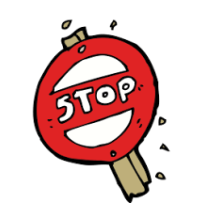 It was Saturday night and my significant other and I had reservations for a Mexican restaurant we love, however, as the time neared, neither of us felt hungry so we rescheduled and decided to go see Deadpool 2, in need of a little comedy. We thought we’d be old school and just walk to the theatre and buy tickets there, however, when we arrived at the theatre, the show was completely sold out. The theatre was near a large grocery store so I said, “Well, let’s take the lemons and make lemonade and just get our weekly grocery shopping out of the way.” As we entered, we saw a group of paramedics escorting an elderly Asian American woman through the store towards the entrance. At first, I thought nothing more than, “Oh, I hope she’s ok” and was going to go about my merry shopping way when I realized something was off about the situation. The little old lady kept waving her hands and shaking her head “no” to two of the paramedics, who had their hands on her but weren’t supporting her, as I had first assumed, but instead were forcefully moving her to the store exit against her will. The little elderly lady was digging her heels in, clearly upset, but also clearly unable to speak or understand English. I stopped and backtracked to where the group was, listening. The paramedics were telling the woman she “had to go to the hospital” and that she “had to” get into an ambulance outside. The woman was trying to free herself, with a look of panic. I saw my grandma in that lady and a hundred other grandmas who might not want traditional western care, who might not be able to afford ridiculously inflated emergency room bills, who feel bullied by a bunch of people in uniforms authoritatively telling them what they “have” to do. I marched over and said loudly, “She has the right to reject medical care if she wants to. She’s an adult woman and appears competent and autonomous and able to walk fine by herself.” The two paramedics who were physically pulling the woman quickly jerked their hands off her and turned on me, telling me I didn’t know what I was talking about and to back away, and that the woman had fallen and should go to the hospital. I said, “I understand and I appreciate it if you want to make sure she’s ok physically, but she clearly doesn’t understand you and doesn’t want to go with you so you need to get a translator on the phone to explain the situation to her so she can make her own decision. It’s not your right to make the decision for her when she’s capable of making it herself.” At that point, a police officer got right in my face and told me to leave immediately. I simply looked at him and said, “No, I have a right to be here and I am not doing anything wrong.” He turned his back on me to box me out and left his Taser completely open for me if I had wanted to grab it (which I didn’t). I was sorely tempted to comment on the ill-advised nature of his move but I bit my tongue. It broke my heart a little that this particular police officer (and others I have met in NYC have been great so I hope this officer was just an exception to the rule and not the norm) was normalizing the bullying instead of doing his job to ensure the elderly lady's rights were being respected. A different paramedic – I’ll just call her the 3rd paramedic – told me they were just trying to get the woman help. I told the 3rd paramedic that I understood, but that the little old woman didn’t and that was what needed to be remedied. In the meantime, the first two paramedics kept yelling at the little old woman, “DO YOU UNDERSTAND? YOU NEED TO COME TO THE HOSPITAL!!” louder and louder and louder, as though by increasing their volume, they’d somehow create language comprehension in a non-English speaker. I spoke up again, saying, “She clearly doesn’t understand you and saying the same thing louder isn’t going to help. You need a translator.” The first two paramedics clearly wanted to kill me, but the 3rd one, who had been talking with me, agreed with me and they got a translator on the phone to talk to the woman. I explained to the sympathetic 3rd paramedic that I didn’t want to cause a problem for them and I understood they were doing an important job, but I also wanted them to be cognizant of the fact this is a scared, little old lady who doesn’t speak English. “Look, “ I pointed out. “She’s shaking with fear and there are FIVE uniformed people crowding all around her and shouting at her in a language she doesn’t know.” The 3rd paramedic looked and acknowledged that the situation could be improved. She pulled the others off and said, “Give her some breathing room.” After a call with the translator, it was made clear the lady was declining further medical assistance so the first two paramedics finally backed off and everyone went on their way. I got back to my grocery shopping and the store security manager came up to me and thanked me for helping the lady. I was like, “Yeah, I just thought she was kind of being bullied and I get that everyone probably wanted to help and do the right thing, but they needed to do it in the right way – where the lady was informed and able to properly consent or not, as she chose. I’m not a doctor or a paramedic – I don’t know, medically, what’s best for anyone. All I know is that, in the same situation, I would want to be treated with respect and I would want the situation explained to me in a way I understood and then I would want to be allowed to make my own decision about my own care, so that’s what I tried to ensure for the little old lady.” Afterwards, my significant other was like, “I guess the universe decided you just had to go off defending old ladies in grocery stores instead of enjoying a new restaurant or seeing Deadpool. Can we at least try to get through the grocery shopping without any more adventures?” Hey, Honey, at least it’s never boring, right?!  I went to Costa Rica in May and took a class on medicinal plants. It was incredible and I learned a ton. It’s way too much information for a blog post, however, I just want to share a few cool things I learned that might be helpful to you! 1. Carao for Energy and Anemia My first experience with carao was while I was hiking through the jungle. I had a guide with me and I noticed a plethora of little monkeys eating what looked like dark brown pea pods. I asked about them and the guide explained the monkeys were eating carao, found in pods on the trees. The “pods” ate quite hard and the monkeys have to bang them and break them to access the edible portion within. The guide mentioned off-hand that Costa Rican hospitals give carao to patients who are sick from chemotherapy to help them recover. Later, in my medicinal plants class, I studied carao in more depth. It can also be used to increase energy and, for reasons that aren’t entirely clear, seems to help strengthen the blood and fight anemia as well. You can buy the fruit syrup from the Standish Company LLC if you’re not lucky enough to be in Costa Rica, where a monkey may just throw one of the pods at you (that actually happened to me) for free. The syrup from the fruit is REALLY strong. I find the smell kind of noxious – like a sweaty locker room. If you hold your nose, though, the taste isn’t half bad. If you like molasses, you’ll probably like carao. If you don’t like the strength, you can always mix it into warm water or milk for a tea or latte. I find it’s a good energy booster and helps me recover faster after an intense athletic workout. Tp buy it, just use the link at the end of this blog post or ask for it at your local health food store. 2. Coconut to Regulate Thyroid Function The teacher, who is a herbalist and healer, told me that about 1 T of coconut oil (virgin, raw, unrefined, and organic) helps to regulate thyroid function. I checked other sources later and many confirmed that as a way to use coconut oil. Who knew?! I have several friends with thyroid disorders so I told them about this and they’re trying it out to see if it works. If you try it, please let me know if it works for you and, as always, remember this is NOT medical advice and I am not a doctor. Sorry. Had to say that just in case! 3. Pau d’Arco for Skin Pau d'arco is a tree whose bark and wood are often used to make medicine for everything from cancer to diabetes to stomach ulcers. In my class, the teacher focused on its benefits to the skin, such as its help in reducing eczema and increasing skin health generally. She made a little tincture out of organic Pau d'arco. You can also take it in tea form, but be careful not to take too much. Everything in moderation (and, again, I’m not a doctor and this isn’t medical advice). To buy it, just use the link at the end of this blog or ask for it at your local health food store. There were so many other plants to learn about and, if this is an area that interests you, I highly recommend the book “Medicinal Plants of Costa Rica” by Ed Bernhardt for more information. https://www.barnesandnoble.com/w/medicinal-plants-of-costa-rica-ed-bernhardt/1008720108  How do I love Costa Rica? Let me count the ways! 1. They care and protect their environment – flora and fauna! Costa Rica has devoted an estimated 26% of its land to national parks, wildlife reserves and protected lands making it a top eco-tourism destination. https://www.govisitcostarica.com/travelInfo/ecotourism.asp 2. You can see amazing wildlife from monkeys to boas to anteaters living their normal, happy lives in normal, happy ways – e.g., NOT in a zoo or a cage. #EmptyTheCages Costa Rica’s Manuel Antonio National Park and Monteverde Cloud Forest Reserve are viewed as “models for ecotourism and sustainable development. These parks offer critical habitat to various plant and animal species. The major reason of ecotourism’s success in Costa Rica goes to the active participation of the private sector, exceptional biodiversity and the interaction between the comprehensive protected areas network. The international and national NGOs, local businesses, natives and government organizations also play a major part in the success of the ecotourism programs.” Id. 3. The amount and diversity of the wildlife is just, well, stunning. “Costa Rica has been ranked among the world’s best ecotourism destinations on more than one occasion, and became the first country in the Americas to ban hunting in 2012. As a result, its biodiversity is virtually unparalleled.” https://greenglobaltravel.com/ecotourism-in-costa-rica/ 4. There is so much to see and do, you just can’t get bored. “Costa Rica encompasses a diverse array of ecosystems, from cloud forests and rainforests to wetlands and coastal marine areas.” Id. When to Go I went to Costa Rica at the start of the so-called rainy season in late May and stayed at the incredible Waterfall Villas. Basically, I was in a fancy treehouse in the middle of a jungle in a tiny retreat specializing in local, organic, vegan cuisine. Color me happy! https://waterfallvillas.com For those of you who like privacy, I highly recommend May because the tourist traffic is low and, although it rained, I loved it. We planned all our adventures (white water rafting, waterfall hiking, national park treks, etc.) for the morning. The sun was always shining and the wildlife is prolific then. The rains start in the late afternoon. It’s still warm so we swam in the waterfalls in the rain, but, honestly, we were so active in the mornings with long hikes and ziplining and rafting, that we were pretty exhausted by the time the rain started. At night, in the treehouse – again, in the middle of a jungle! – the thunderstorms were just awesome. Like, the best ever, and we could see the frogs come out and the air fill with electricity. It was exciting! Where to Stay Waterfall Villas was lovely for anyone who wants a private retreat focusing on sustainability, beauty, harmony, and amazing food. There is yoga outside overlooking the waterfalls, a couple of hiking trails among the falls and in the jungle, and about 6 villas which are like little treehouses. The dining area is a gorgeous open-air terrace overlooking the falls and the food is all local, organic and they specialize in vegan cuisine. I have never felt healthier or more energized. You certainly won’t leave hungry. The only downside is sound carries between the villa treehouses, so, if you like it very quiet, travel off-season when there will be fewer people or control the crowd by booking all 6 villas at once for your family and/or friends. They’ll customize a retreat for you with whatever you want from yoga to detox. Just to give you an idea of what you can do, my significant other and I customized ours to include a mix of adventure, downtime and education: Adventure We went white water rafting, ziplining and hiking (and swimming) through the Nauyaca Waterfalls, hiking through multiple national parks, including the not-to-be-missed MANUEL ANTONIO NATIONAL PARK, which is ranked by Forbes as one of the world’s most beautiful national parks – for good reason! And explored the incredible Hacienda Baru wildlife refuge (where anteaters, sloths, monkeys, and more traipsed by on their merry way while we stared in amazement). We also did our ziplining in the Hacienda Baru wildlife refuge, which was so much fun. Seeing the jungle from above, while whizzing through the air is indescribable and you don’t have to worry about harming the environment or stressing the trees or animals because the staff takes every precaution to ensure the environment and animals are protected above all. Downtime We had incredible massages outside on the banks of the waterfalls, in the middle of a vast jungle. An experience not to be missed. We also did a lot of relaxing in the waterfalls and on the beach. I will say be careful. With the fabulousness of being “in the wild,” comes the need to exercise proper diligence. There are venomous snakes and biting insects, so you do have to just be careful. A bit of bug spray (I used an all-natural insect repellant with rosemary, lavender, citronella, and some other essential oils, which worked well for me) is an absolute must. Also, on the snakes: On my last day in Costa Rica, I hiked into the jungle and rested in the middle of some waterfalls where the water was light and there were dry rocks available in the center between the two banks. I took off my water shoes (Reefs, which, by the way, I bought 20 years ago(!!) in Australia for about $10 and have held up amazingly) and meditated in the sun. I know it sounds silly but I asked a question of the universe and immediately I felt like someone was there and opened my eyes and not three feet away was a Terciopelo (“velvet” in Spanish), about 5’ long. Terciopelos are venomous and, I think, part of the pit viper family. The snake was partially coiled, however, her upper body was straight up in the air (kind of like how one often sees cobras depicted) and she was looking right at me. At first I thought, I am so lucky to see her so close! Then I thought, wait! What is proper Terciopelo etiquette? Do I look back at her or will that be perceived as aggressive? Do I freeze? Move? I didn’t know what to do so I just looked at her. She tilted her head slightly towards me and I decided it might be prudent to leave. I very very slowly put my shoes back on while she watched and slowly, slowly waded to the opposite bank. On the bank, I paused and looked at her. She lowered her upper body and moved to the other bank, wrapped herself around a low hanging vine, watched me another moment and vanished. I can’t help but wonder if she was answering my question. Educational I took advantage of the fact I was in an awesomely unique place that actually prioritizes the protection of its natural resources and took a class on the medicinal plants of Costa Rica. I’m blogging about some of the interesting things I learned in another blog post. Suffice it to say, my Manhattan kitchen is now full of Costa Rican plants and concoctions! To sum it all up: Costa Rica is awesome, awesome, awesome. I can’t believe I waited so long to go there. It’s fantastic!!!!!! Today, I went to a tiny tui na massage place that offers very cheap, no frills massages. For those of you who don’t know, tui na (pronounced "twee naw") refers to a wide range of Traditional Chinese Medicine (TCM) therapeutic massage and body work. There are a ton of small, simple tui na places all over New York City, usually staffed by Asian American immigrants who work extremely long hours for very little money. To give you an idea of the pricing, a 90 minute massage at the place I go to costs only $70. You can imagine how little the actual massage therapist is getting after the business’s cut and overhead.
|
Jen YenActor, Author, Attorney Archives
April 2024
Categories
|


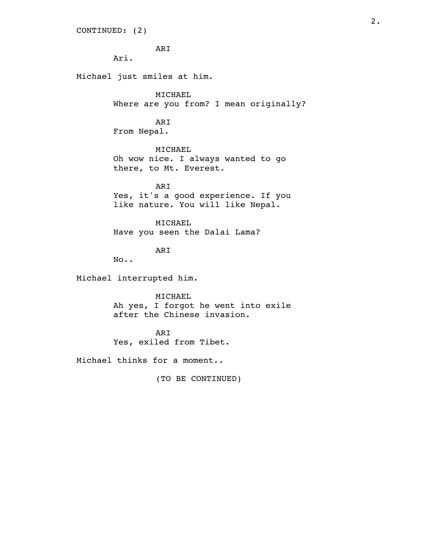

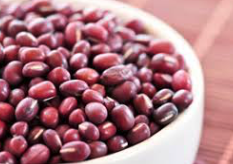



 RSS Feed
RSS Feed
